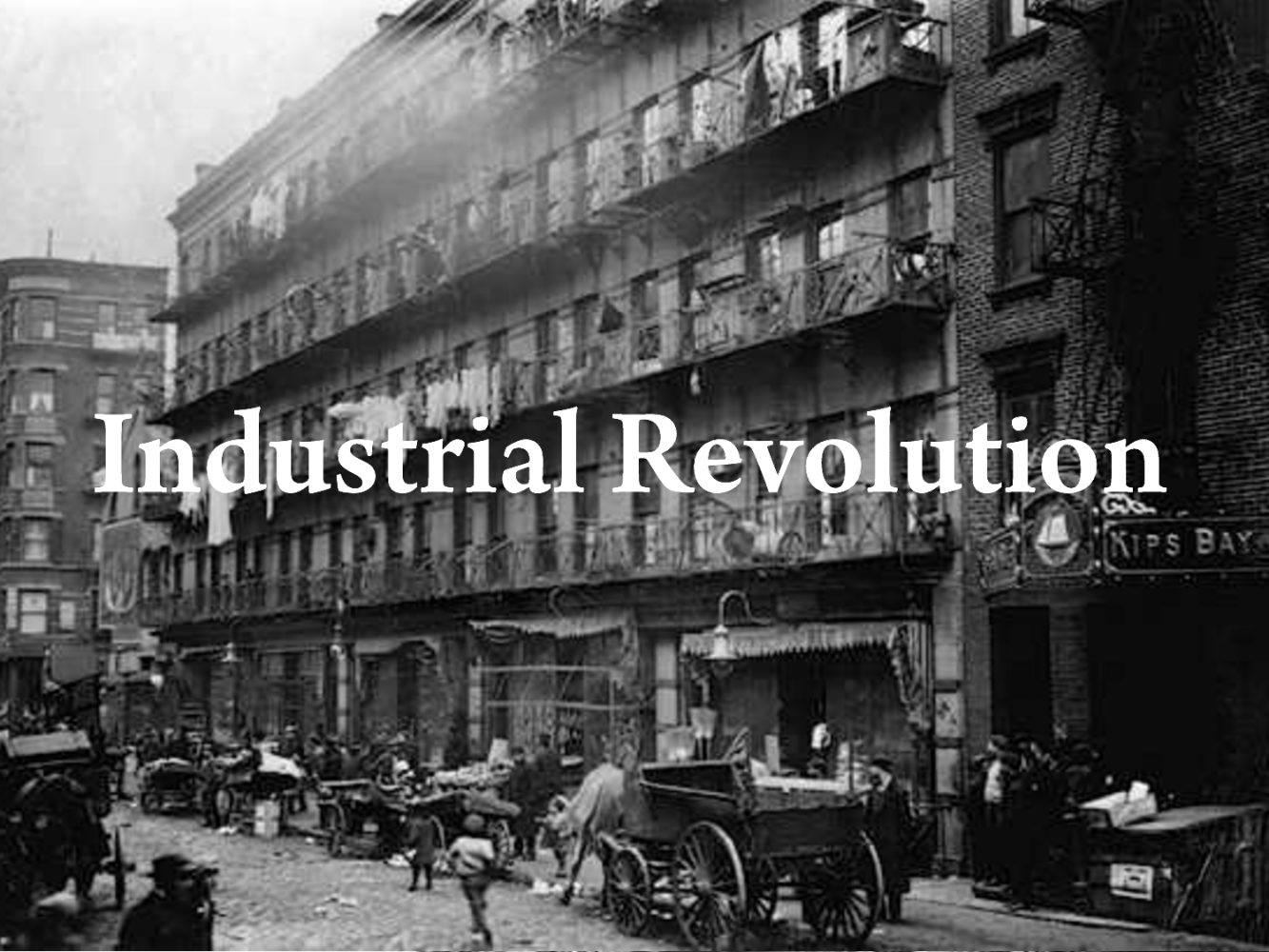The Industrial Revolution began in England and the Northeast United States within the 18th and 19th centuries. It was a time where predominantly agrarian, rural societies in Europe and America became an industrial and urban. Before the Industrial Revolution, which began in the late 1700’s in Britain, manufacturing was mostly done in peoples houses. The early Iron and and textile industries were known as cottage industries.
The development of ‘The steam engine’ played large roles in the Industrial Revolution. This engine drastically improved systems of transportation, communication and manufacturing. As Industrialization progressed it caused an increased volume and variety of manufactured goods and improved standards of living for some- (Mainly the owning class) In order to produce cheaply there was often grim employment and living conditions for the poor working classes in the U.S and England. Children and women were used and abused as the cheapest form of labor.
http://en.wikipedia.org/wiki/Industrial_Revolution

In the early years of the 20th century there was a large number of children who worked in factories. During the Progressive time period of 1902 to 1915, child labor committees emphasized reform through state legislatures. Many laws were restricting child labor and it was passed as part of the progressive reform movement of the time period. The debate over labor practices continued and some laws were seen as too strict on business owners while others did not do enough for workers rights. This led to a decision to work for a federal child labor law.
The congress passed laws in 1916 and 1918 but then the supreme court declared them unconstitutional. The rivals of the child labor practices began to seek a constitutional amendment authorizing federal child labor legislation. Then the congress passed a amendment in 1924, but the conservative political climate of the 1920’s, together with opposition from some church groups and farm organizations that was afraid of a increase of federal power in areas related to children, prevented most of the states from ratifying it.
http://www.history.com/topics/child-labor
Corporate leaders in the Industrial Revolution and why they are important.
Here are some ways to remember key information and vocabulary about the early days of industry in America.
In the beginning of industry, laissez faire let the government be LAZY at ENFORCEMENT of fair business practice = We needed more “fair practices” after this time period.
Land grants to helped Vanderbilt the railroad monopoly.
Carnegie brought ‘steele’ to the image. We could not have built the CAR without CARnegie steel.
Rockefeller was known as the ‘oil’ tycoon. You can’t drill oil in America at this time without going through the ROCK.
J.P. Morgan Cha$e monopolized banking and we still have CHASE BANK today.


YoungWolf • Apr 20, 2015 at 2:19 pm
its crazy how kids went to work, i mean there is still countries in the world that have kids that work to help their family out. they start at a young age but do not really get an education because of it, which is bad, because we all need the education to educate others and ourselves.